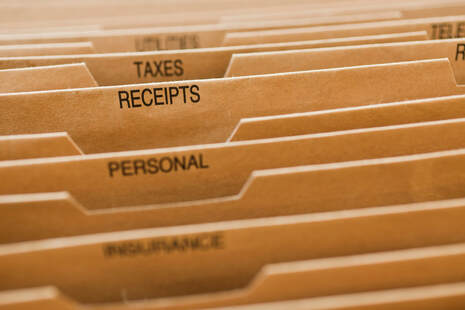
Here are some simple types to get control of your finances:
Clean - Get rid of the clutter. Shred unnecessary paperwork. See "What to Keep" below. Get your name off of mailing and telephone list:
Mail Preference Service Telephone Preference Service
P.O. Box 9008 P.O. Box 9014
Farmingdale, NY 11735 Farmingdale, NY 11735
* Telemarketing Calls - www.donotcall.gov or call toll free (888) 382-1222
* Direct Mail and Email Offers - www.dmachoice.org
* Credit Card Offers - www.optoutprescreen.com or call toll-free (888) 567-8688
* Online Cookie Collecting - www.networkadvertising.org
Control - By knowing what you own, what you want and where you going. Get control of your finances by getting a expandable file. Keep all your bills and receipts in the file. Read your bills and bank statements to check for unauthorized charges. Get a free copy of your credit report and FICO (Fair Isaac Corporation). ( www.myfico.com)
Prioritize - List your assets and debts. Pay off your highest interest credit card debt first. After you pay them off, cancel them. You only need one credit card for emergency. Don't carry them with you so you make unexpected spur of the moment purchase when you shop.
Save - Get a savings account. Only keep what you need in your checking account the rest should go in the savings account. You should have a least 8 months of savings in case you lose your job or have an emergency.
Invest - In your future. Take FULL advantage of any 401(k) or 403(b) plan provide by employer. Start a Roth IRA. Every small bit put away will grow. You don't have to put a lot way, even $50.00 a month is better than nothing. If you can try other types of investment.
Protect - Protect you and your family by getting any necessary insurance. Life, Car, Home or Health Insurance. In addition, plan for long term care during your retirement stage of life. Social Security is meant to be a supplemental income for retirement not the only income.
Plan - Get your estate plan in order. You need more than a Will. If your over 18 you need a Power of Attorney for Healthcare and a Durable Power of Attorney for Finance.
Learn - Go to the Library and read: books, magazines, newspapers, or on the internet book financial information
What and How Long to Keep Documents
1 Month or until you balance checkbook:
* all ATM receipts
* all Debt receipts
1 Year - unless used for taxes then keep with tax bills
* Utility bills
* All cancelled checks
* Credit card receipts
* Bank statements
* Paycheck Stubs
* Letter from Social Security projecting amount paid/future benefits
3 Years
* Medical Bills
* Cancelled Insurance Policies
* Records of Selling Stock
* Deeds for Property after you sell
* Annual Investments
* Cancelled / Paid of Credit Cards
7 Years
* Income Tax Returns with all corresponding receipt
Others
* Warranties - till they expire with the sales receipt
* Funeral Arrangements until used or sold
* Driver's License/Passport until new one issued - shred old one
While Active
* Contracts
* Insurance Documents
* Stocks, Mutual Funds, Annuities, IRA Records
* Property Records, Mortgages, Property Tax Bills
* Home Improvement Records
Forever
* Birth Certificates/ Adoption Papers
* Diplomas
* Marriage Licenses/Divorce Decree/Pre-nuptials
* Wills, Trust, Powers of Attorney
* Death Certificates
* Military Paper Work
* Business Owned (depends on business)
* Passport
Medicaid/Title 19/Nursing Home
* The above time frame does not apply when you are applying for Title 19. The application allows for inspection of financial documents for the previous 5 years when submitting the application. You will need to keep all financial information for 5 years previous to apply for Title 19 (5 year look back period).